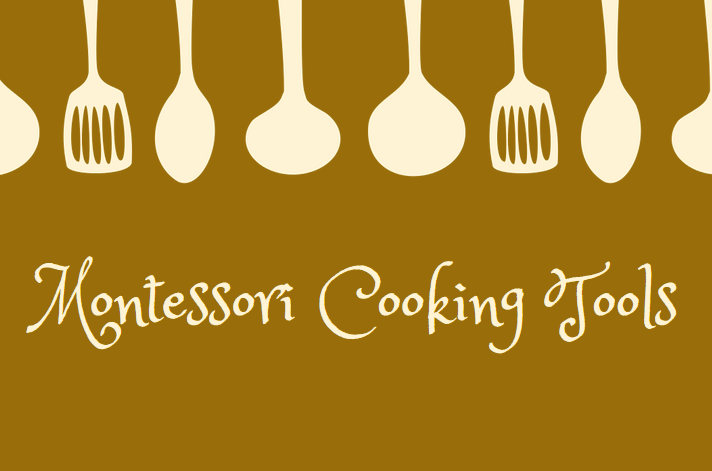Cooking is an everyday activity that holds immense potential for toddler development when approached with a Montessori lens. Cooking encompasses various skills, from motor coordination to cognitive understanding, and provides a wonderful platform for learning, exploration, and bonding. This guide will delve into how preparing a meal with your child can transform into a meaningful educational experience. We’ll explore the benefits, the tools, and the activities that make Montessori kitchen work both an engaging playtime and a robust skill-building moment for toddlers. So, whether you’re a parent, caregiver, or educator, prepare to stir up some fun and learning in the kitchen with your little ones!
The Philosophy of Montessori
The Montessori Method, conceived by Dr. Maria Montessori, is an educational philosophy that emphasizes hands-on, independent learning in a carefully prepared environment. The method views children as natural learners, driven by curiosity and a desire to explore and understand the world around them. Central to this philosophy is self-directed activity, where children learn by doing at their own pace, guided by their instincts and interests. The role of adults in this setting is to facilitate learning, provide appropriate materials, and support children in their exploration. Montessori education empowers children, celebrates individuality, and fosters a love for lifelong learning. Applying these principles to daily activities such as cooking can provide a rich and rewarding educational experience for a toddler.
Benefits of Cooking with Toddlers
Cooking offers a host of benefits that align with the Montessori philosophy, providing a golden opportunity for skill acquisition, exploration, and bonding.
- Motor Skill Development: Manipulating utensils, pouring, and stirring engage fine motor skills and hand-eye coordination — a critical aspect of a toddler’s developmental process.
- Cognitive Skill Enhancement: Counting, measuring, and sequencing, all integral parts of cooking, aid cognitive development. They foster an understanding of math concepts and problem-solving abilities.
- Sensory Exploration: Cooking engages all senses – sight, touch, taste, smell, and hearing. Engaging in sensory-rich cooking activities allows toddlers to explore and heighten their sensory perceptions.
- Fostering Independence: Encouraging toddlers to participate in cooking tasks fosters a sense of independence and boosts their self-confidence, key principles of Montessori education.
- Bonding Time: Shared food preparation is a rewarding activity that strengthens the bond between caregiver and child, providing meaningful shared experiences and enhancing emotional well-being.
Montessori Cooking Tool

Inviting Montessori into your home begins ideally with Practical Life activities centered in your kitchen. However, the right tools matter, especially child-sized cooking utensils. You might question, ‘Why not use existing kitchen tools?’. The answer lies in the philosophy of the Montessori approach. Purpose-built, small-size tools designed for young hands are not only safe but also promote a sense of ownership and independence. Let’s explore why these utensils are revered in the Montessori community and identify some of the best for your little chef!
Child-Sized Kitchen Tools
Introducing Montessori cooking activities need not be deterred by a shortage of specialized child-sized kitchen tools. You can help your child explore Practical Life in the kitchen even with standard utensils. However, investing in small-sized kitchen tools is preferable for carrying forth the Montessori ethos, as they:
- Enhance Safety: Precisely designed for tiny hands, these tools minimize risks, encouraging children to engage in cooking confidently and with minimal supervision.
- Promote Convenience: The compact nature of these utensils accommodates children’s dexterity, ensuring a stress-free cooking experience and fostering their love for culinary activities.
- Nurture Ownership: Equipping young ones with their kitchen tools empowers them to take responsibility and embrace independence, key tenets of the Montessori approach.
Investing in child-sized kitchen tools can be invaluable in cultivating your little one’s cognitive and emotional growth, turning cooking into a delightful bonding experience.
Montessori Kitchen Tools
Bringing Montessori principles into the kitchen requires a range of child-friendly tools designed to foster independence, safety, and fun. Here’s a list of recommended items, focusing on linens, containers, knives, fruit and vegetable washing, and general utensils.
1. Linens

Facilitating a tidy cooking process, kid-friendly linens not only invite active participation but also promote hygienic practices.
- Child-Sized Aprons: Keeping their clothes stain-free makes kids feel like mini chefs.
- Small Kitchen Towels: Perfect for wiping hands, cleaning utensils, or mopping up small spills, fostering cleanliness and order.
2. Containers
Containers play a crucial role in a child’s kitchen journey, enabling precise cooking and clever storage.
- Child-Sized Measuring Cups: Teaching proportion and honing kid’s counting skills.
- Miniature Mixing Bowls: Allowing easy handling in mixing, stirring, or whisking tasks.
- Small Storage Containers: Teaching them about proper food storage and organization.
3. Knives
Navigating the cutting process can be challenging in a Montessori kitchen. But ideally sized and safely designed knives can turn this hurdle into a skill-enhancing experience.
- Wooden Knives: Large-handled wooden knives, ideal for first-time chopping.
- Plastic Knives: Made to resemble a regular knife for delicate slicing tasks.
- Crinkle-Cut Knives: Unique pattern creating interest and aiding in handling slippery, chopped produce.
- Peelers and Graters: For peeling veggies and grating cheese.
- Lightweight Plastic Cutting Board: Easy to move, clean, and use, and with a rubber edge for safety.
4. Fruit and Veggie Washing

Engaging kids in cleaning produce enriches their understanding of food hygiene and enhances motor skills.
- Mini Wash Basin: Encourages participation in washing fruits and veggies.
- Small Colander: Sized for small hands, aids in rinsing produce after washing.
- Kid-Friendly Vegetable Scrubber: A vegetable scrubber ideally shaped for a child’s hand, ensuring spotless fruits and vegetables are ready for cooking.
5. General Utensils
General utensils are crucial to various cooking tasks round out our list of recommendations.
- Child-Sized Tongs: Enhances hand-eye coordination and fine motor skills.
- Mini Spatulas: Perfect for flipping and lifting simple tasks.
- Small Whisks and Stirring Spoons: Ensuring kids feel confident and capable in their culinary adventures.
These Montessori-approved tools create a safe, exciting kitchen space conducive to learning
and growth.
Kitchen Activity for Skill Development

The kitchen serves as a remarkable environment for children’s growth and learning. Engaging kids in cooking activities not only helps them understand food and nutrition but also encourages kinesthetic learning as they use physical movement and the senses to internalize various concepts.
Here are a few cooking activities that aid in honing numerous skills:
- Making Smoothies: This colorful activity promotes understanding of fruits, their unique tastes and textures, and their transformation when blended.
- Preparing Pancakes: Mixing, pouring, and flipping helps in fine motor control and introduces them to heat reactions.
- Baking Cookies: Shaping dough into different forms strengthens creativity, enhances fine motor skills, and instills a basic understanding of baking.
- Creating Fruit and Veggie Salads: Washing, peeling, and cutting various ingredients enhances practical life skills while promoting healthy eating habits.
- Assembling Sandwiches: Kids learn about layering, textures, and taste combinations, fostering culinary creativity.
These activities provide hands-on experiences, instill essential life skills, and foster a love for healthy food.
Final Thoughts
The Montessori approach to cooking offers a unique, practical, and engaging way to blend education and entertainment for toddlers. It is a hands-on opportunity for children to gain new skills, recognize their abilities, and develop valuable life competencies, including problem-solving, basic math skills, and independence. This method, dovetailed with crafting healthy meals, also instills a lifelong appreciation for nutrition.
If you have a toddler and you’re actively searching for a center that prioritizes a child-focused learning approach, Montessori Academy could be your ideal choice. Along with a multitude of comprehensive programs, we offer specialized cooking activities that cater to the curiosity and creativity of young minds. Empowering children through a Montessori-centered approach to learning is at the heart of our mission. Join us today and let your child embark on an enriching journey towards holistic development. Contact us for more information.

